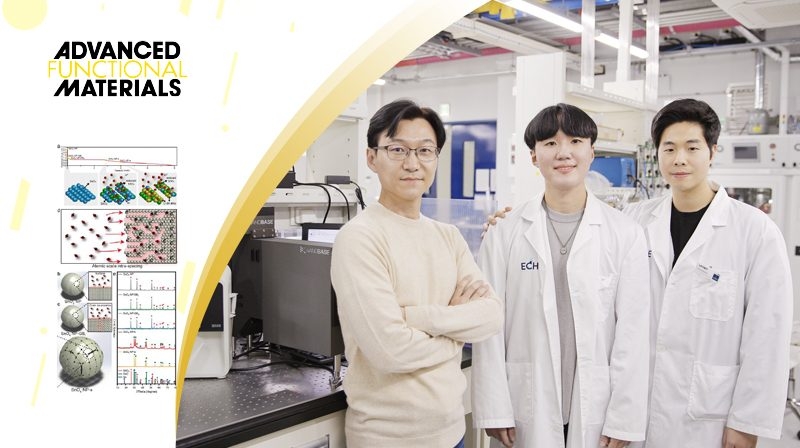A research team, affiliated with UNIST has developed a catalyst that converts the chief greenhouse gas carbon dioxide (CO2) into added-value chemicals. This breakthrough has been carried out by Professor Kwon Youngkook and his research team in the School of Energy and Chemical Engineering at UNIST, in collaboration with researchers from DGIST and Sungkyunkwan University.
In this study, they succeeded in synthesizing a novel tin oxide (SnOx) nanoparticle (NP) catalyst with highly controlled sub-nanoscale interplanar gaps of widths, 10,000 times smaller than the diameter of a human hair via the lithium electrochemical tuning (LiET) method. The new catalyst can capture CO2 and convert and release it in the form of formic acid. Besides, when compared to conventional catalysts, the new catalyst, with its highly selective and active properties, is expected to serve as a core technology for carbon recycling.
The findings of this research have been published in the online version of Advanced Functional Materials, ahead of publication, on October 23, 2021. It will be also selected as a front cover.
Journal Reference
Kim, M. K., Lee, H., Won, J. H., Sim, W., Kang, S. J., Choi, H., Sharma, M., Oh, H.-S., Ringe, S., Kwon, Y., Jeong, H. M., “Design of less than 1 nm Scale Spaces on SnO2 Nanoparticles for High-Performance Electrochemical CO2 Reduction,” Adv. Funct. Mater. (2021).












